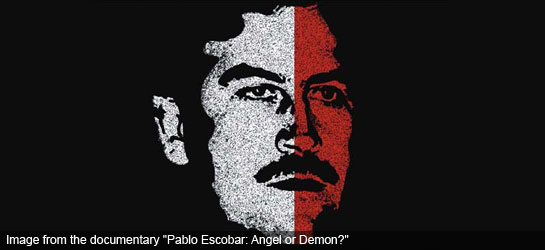
A US court has ordered the CIA to make public documents concerning links between the anti-Escobar vigilante group Los PEPES and the US government.
The driving force behind the process to make the documents public has been the Institute for Policy Studies (IPS), which has been engaged in a legal battle against the CIA since 2004 to facilitate the publication of all documents mentioning Pablo Escobar and Los PEPES (People persecuted by Pablo Escobar) from the CIA archives.
IPS claimed the CIA is deliberately concealing information about its connection to Los PEPES, which was founded in 1993 by enemies of the notorious drug lord with the same name.
Many founding members of Los PEPES, such as “Don Berna” and the three brothers Carlos, Vicente and Fidel Castaño, would later move on to create the United Self-Defense Forces of Colombia, or AUC, a paramilitary organization guilty of widespread murder and terrorism in its self-proclaimed battle against Colombia’s left-wing FARC and ELN rebels.
The AUC was listed as a terrorist group by the US government in 2002.
Escobar, who by 1993 had made his Medellin Cartel strong enough to threaten the integrity of the Colombian state apparatus, was a top priority for the Colombian police and US authorities alike, leading to suggestions of collaboration between Los Pepes, the Colombian government and the U.S. Drug Enforcement Agency (DEA).
The CIA claimed the publication of documents containing the phrase “Pablo Escobar” could harm national security, a claim rejected by U.S. District Judge Royce Lamberth, who ruled in favor of the IPS request to “broaden its search for records.”
Judge Lamberth ruled that the Freedom of Information Act required the CIA to “made a good faith effort to conduct a search for the requested records,” while ruling the CIA’s “failure to search the remaining three directorates while admitting that they would likely contain records responsive to plaintiff’s search does not rise to the level of an adequate search,” while stating the CIA would still have the opportunity to claim certain records were exempt from disclosure.
Carlos Salinas, an IPS consultant, told Colombia Reports the documents could reveal the names of PEPES leaders and their contacts, while leading to further knowledge about the origins of the AUC.

